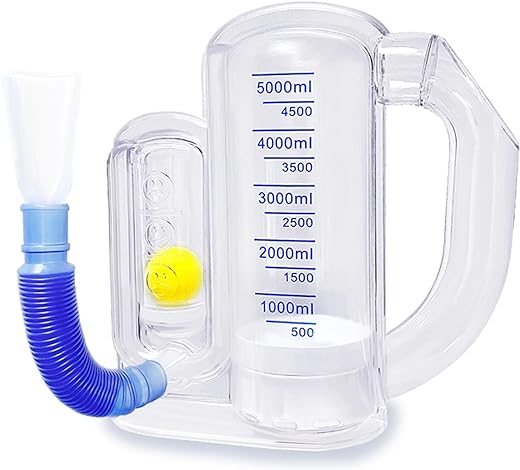Imagine starting your fitness journey without a clear destination in mind. How do you stay motivated? How do you measure success? Setting fitness goals provides you with a roadmap to your desired destination—a healthier, fitter you. In this blog post, explore the essential benefits of setting fitness goals and learn ways to maximize your potential in achieving them. Step into the world of targeted workouts and understand the significance of having clear objectives for a purposeful and fulfilling fitness routine.
Get Fit and Save with Our Top Exercise Incentives!
The Power of Setting S.M.A.R.T. Goals
Setting Specific, Measurable, Achievable, Relevant, and Time-bound (S.M.A.R.T.) goals is a proven strategy for boosting motivation in fitness journeys. By clearly defining what you want to achieve, such as losing 10 pounds in two months or running a 5K race within a given timeframe, you give yourself a target to strive towards. This clarity eliminates ambiguity and provides a clear roadmap for success.
Examples:
- Fitbit Charge 4 Fitness Tracker: This wearable device allows you to set specific fitness goals, track your progress, and receive real-time notifications to keep you accountable.
- Nike Run Club App: The app helps runners set goals for distance, pace, and frequency of runs, providing personalized coaching to stay motivated.
Maintaining Consistency Through Goals
When you have clearly defined fitness goals, you are more likely to stay consistent with your routine. Consistency is key to achieving long-term results and is a direct outcome of having motivating goals to work towards. Whether it’s aiming to increase the number of push-ups you can do in a week or hitting a personal best in deadlifts, having a goal to chase adds excitement and purpose to your workouts.
Benefits:
- Keeps you focused and on track
- Makes progress measurable and tangible
Celebrating Milestones and Progress
As you work towards your fitness goals, it’s essential to celebrate both small and significant milestones along the way. Recognizing your progress, no matter how minor, boosts motivation by instilling a sense of accomplishment and reinforcing the belief that you are capable of achieving your ultimate goal.
Tips:
- Set up rewards for reaching milestones (e.g., new workout gear, a massage session)
- Share your progress on social media for encouragement from others
Adjusting Goals for Continued Motivation
Successful goal-setting is a dynamic process that allows for adjustments as needed. If you find yourself losing motivation or hitting a plateau, don’t hesitate to reassess and revise your goals. Perhaps you may need to increase the intensity of your workouts, alter your nutrition plan, or explore new fitness activities to reignite your excitement and determination.
Strategies:
- Seek guidance from a fitness coach to redefine your goals
- Break larger goals into smaller, more manageable ones to avoid feeling overwhelmed
Closing Thoughts
In conclusion, setting fitness goals is a powerful tool for increasing motivation, driving consistency, and achieving tangible results in your wellness journey. By adopting the S.M.A.R.T. goal framework, celebrating milestones, and staying adaptable in your pursuits, you can set yourself up for long-term success and fulfillment in fitness. Commit to defining your goals, taking consistent action, and embracing the journey towards becoming the best version of yourself!
The Significance of Measurable Progress in Fitness Journey
In the world of fitness and wellness, the concept of measurable progress plays a pivotal role in helping individuals achieve their goals effectively. By setting specific fitness objectives, individuals not only outline a path towards success but also pave the way to track their progress, celebrate accomplishments, and remain motivated along the way.
Setting Specific Fitness Goals:
- Fitness Trackers like Fitbit can help individuals set specific goals related to their steps, heart rate, sleep patterns, and calorie intake.
- Exercise Apps like Nike Training Club allows individuals to define clear fitness objectives such as duration of workouts, calorie burn goals, and strength-building targets.
- Online platforms like Strava enable runners and cyclists to establish goals around distance covered, speed enhancements, and personal records.
Effectively Tracking Progress:
- FITINDEX Smart Body Fat Scale provides detailed insights into weight loss progress, muscle mass changes, and water retention fluctuations.
- Apple Health App offers a comprehensive overview of various health metrics, showcasing improvements in heart rate variability, steps taken, and workout minutes.
- MyFitnessPal logs daily food intake, exercise routines, and weight trends to monitor the progress towards achieving a desired weight goal.
Celebrating Achievements and Staying Motivated:
- Fitbit Challenges encourage users to compete with friends, offering badges and rewards upon completion of milestones.
- Peloton App celebrates fitness achievements with virtual high-fives, encouraging members to push through harder workouts by joining live classes.
- Nintendo Ring Fit Adventure transforms fitness into a fun game, rewarding players with in-game achievements and progress unlocks.
Embracing the power of measurable progress in fitness not only enhances focus and determination but also fosters a sense of accomplishment that propels individuals forward on their fitness journey. Whether it’s through state-of-the-art fitness gadgets or innovative wellness applications, the ability to measure progress serves as a catalyst for continuous improvement and success.
Accountability
Setting fitness goals is a crucial step towards a healthier lifestyle, but what many individuals overlook is the importance of accountability in achieving those goals. Accountability can be the key difference between sticking to a workout plan and falling off track. Let’s delve deeper into the role of accountability in fitness and how it can significantly impact your journey towards a fitter, healthier you.
Understanding Accountability in Fitness
What is Accountability in Fitness?
Accountability in fitness refers to the act of holding oneself responsible for adhering to a set goal or plan. By establishing clear objectives and tracking progress, individuals empower themselves to stay focused and on track.
Why Does Accountability Matter?
Accountability creates a sense of commitment and responsibility, driving individuals to stay motivated and dedicated to their fitness goals. Knowing that they are answerable not only to themselves but possibly to others as well keeps individuals accountable and less likely to give up.
Tools and Strategies for Accountability
Fitness Trackers
- Examples: Fitbit, Garmin, Apple Watch
- These wearable devices help monitor various fitness metrics such as steps taken, heart rate, and calories burned, offering real-time feedback to keep users accountable and motivated.
Online Communities
- Examples: Peloton, Strava, MyFitnessPal
- Engaging with online communities can provide a sense of camaraderie and support, allowing individuals to share progress, set challenges, and receive encouragement from peers.
Personal Trainers
- Professional trainers provide personalized workout plans, guidance, and continuous support, holding clients accountable for their progress and pushing them to achieve their fitness goals.
Benefits of Accountability in Fitness
- Motivation: Feeling accountable boosts motivation levels, making it easier to stay committed.
- Consistency: Keeping track of progress ensures that individuals remain consistent in their workout routines.
- Goal Achievement: Being held accountable increases the likelihood of reaching set fitness targets.
- Long-Term Success: Accountability fosters habits that can lead to long-term health and wellness benefits.
Incorporating accountability into your fitness journey can make a significant difference in achieving your goals. Whether it’s through wearable technology, online communities, or professional guidance, finding the right accountability method for you is the key to staying focused and motivated in your pursuit of a healthier lifestyle.
Discover the Power of Clear Fitness Goals
Maintaining focus during your fitness journey can be the difference between success and stagnation. One way to achieve this focus is by setting clear fitness goals. Let’s dive into how setting clear fitness goals can improve your focus and lead to more effective workouts.
The Importance of Setting Clear Fitness Goals
Setting clear fitness goals provides you with a roadmap to success. By defining tangible objectives, you can create a plan that ensures each workout serves a specific purpose, rather than aimlessly going through the motions. here are some crucial aspects:
- Targeted Progress: Clear goals allow you to track your progress accurately, motivating you to push harder and achieve new milestones.
- Enhanced Motivation: Knowing exactly what you’re working towards provides a sense of purpose and fuels your motivation to stay consistent with your workouts.
- Personalization: Tailoring your goals to suit your fitness level, preferences, and timeline ensures that you have a customized approach that maximizes your results.
Maximizing Focus Through Strategic Goal-Setting
When setting your fitness goals, consider the following:
- Specificity: Choose goals that are specific and measurable to provide clarity on what you want to achieve and make progress tracking easier.
- Relevance: Align your goals with your overall fitness aspirations to ensure that each step you take contributes towards the bigger picture.
- Time-Bound: Setting a realistic timeline for your goals helps create a sense of urgency and prevents procrastination, keeping you on track.
Real-Life Examples of Focused Goal-Setting in Fitness
- Fitbit: Track your daily steps and set specific goals to increase your activity level gradually.
- Peloton Bike: Join live classes every morning to maintain consistency and work towards improving your cycling performance.
- Under Armour HOVR™ Running Shoes: Set distance or pace goals during your runs, aided by real-time feedback from the shoe’s connectivity features.
Focus on Results, Not Distractions
By setting clear fitness goals tailored to your unique journey, you can direct your energy towards what truly matters, resulting in more purposeful and effective workouts. Elevate your performance and surpass limitations by unlocking the power of focus through structured goal-setting.
Achieve Your Ultimate Health and Happiness in Reach
In conclusion, setting fitness goals is a powerful tool for individuals looking to enhance their physical well-being and overall health. By incorporating SMART goals into their fitness regime, individuals can boost motivation, track progress effectively, stay accountable, and maintain focus. Leveraging the benefits of goal setting in pursuit of fitness objectives can lead to long-lasting positive results and a healthier lifestyle.
Unlock Your Fitness Rewards
Can setting fitness goals and exercise incentives help individuals maintain long-term commitment to a healthy lifestyle?
Yes, setting fitness goals and exercise incentives can help individuals maintain long-term commitment to a healthy lifestyle. By establishing specific, achievable goals, individuals are more likely to stay motivated and focused on their fitness journey. Incentives such as rewards or group challenges can add an extra layer of motivation and accountability, making it easier for individuals to adhere to their exercise routine and overall well-being over the long run. This can lead to improved physical and mental health outcomes, including increased energy levels, reduced stress, and a stronger sense of accomplishment.
How can tracking progress towards fitness goals enhance one’s overall exercise experience?
Tracking progress towards fitness goals can significantly enhance one’s overall exercise experience by providing clear and measurable indicators of achievement. These indicators serve as motivation, as individuals can see tangible improvements over time, boosting confidence and driving them to push harder. Additionally, monitoring progress allows for continual adjustments to be made to the workout routine or goals, leading to more effective and efficient training. Seeing improvement can also instill a sense of satisfaction and accomplishment, reinforcing the individual’s commitment to their fitness journey. Therefore, tracking progress is a valuable tool that not only enhances the exercise experience but also helps individuals stay focused and motivated on their path to fitness success.
What are some examples of effective exercise incentives that people can use to motivate themselves?
Some examples of effective exercise incentives that people can use to motivate themselves include setting specific goals, rewarding progress with non-food treats such as a new workout gear or a spa day, joining group fitness classes for accountability and community support, tracking progress with fitness apps or devices, creating a workout playlist with high-energy music, or signing up for charity events as a way to exercise for a greater cause. By implementing these incentives, individuals can boost their motivation to stay active and make lasting fitness improvements.
What role do rewards and incentives play in achieving fitness goals?
Rewards and incentives play a crucial role in achieving fitness goals by providing positive reinforcement and motivation for individuals to adhere to a healthy lifestyle. When individuals receive rewards or incentives for making progress towards their fitness goals, they are more likely to stay committed, remain focused, and stay on track with their exercise and nutrition regimen.
By offering rewards such as small treats, a favorite workout gear, or meeting personal milestones like a good workout streak, individuals can experience a sense of accomplishment and satisfaction, which boosts their self-esteem and confidence. Incentives like joining fitness challenges, receiving recognition for achievements, or enjoying quality time with loved ones can also foster a sense of community and accountability, further enhancing adherence to fitness routines.
Ultimately, rewards and incentives act as powerful tools in reinforcing positive behaviors and habits, leading to increased motivation, consistency, and success in achieving one’s fitness goals.



















Could you recommend some books or resources for setting effective fitness goals?
Thank you for your interest! I recommend checking out ‘Atomic Habits’ by James Clear and ‘The One Thing’ by Gary Keller for further reading on goal-setting.
Can you suggest some specific fitness goals that are suitable for beginners?
Great question! For beginners, I suggest starting with goals like walking 10,000 steps a day, drinking enough water daily, and doing 30 minutes of exercise three times a week.
I’m concerned about how to stay motivated when facing obstacles in achieving fitness goals.
Overcoming obstacles is a common concern. Remember to celebrate small wins, seek support from friends or a fitness buddy, and adjust your goals if needed to keep yourself motivated.